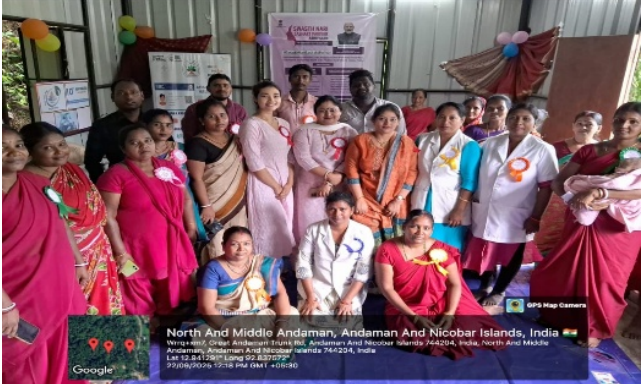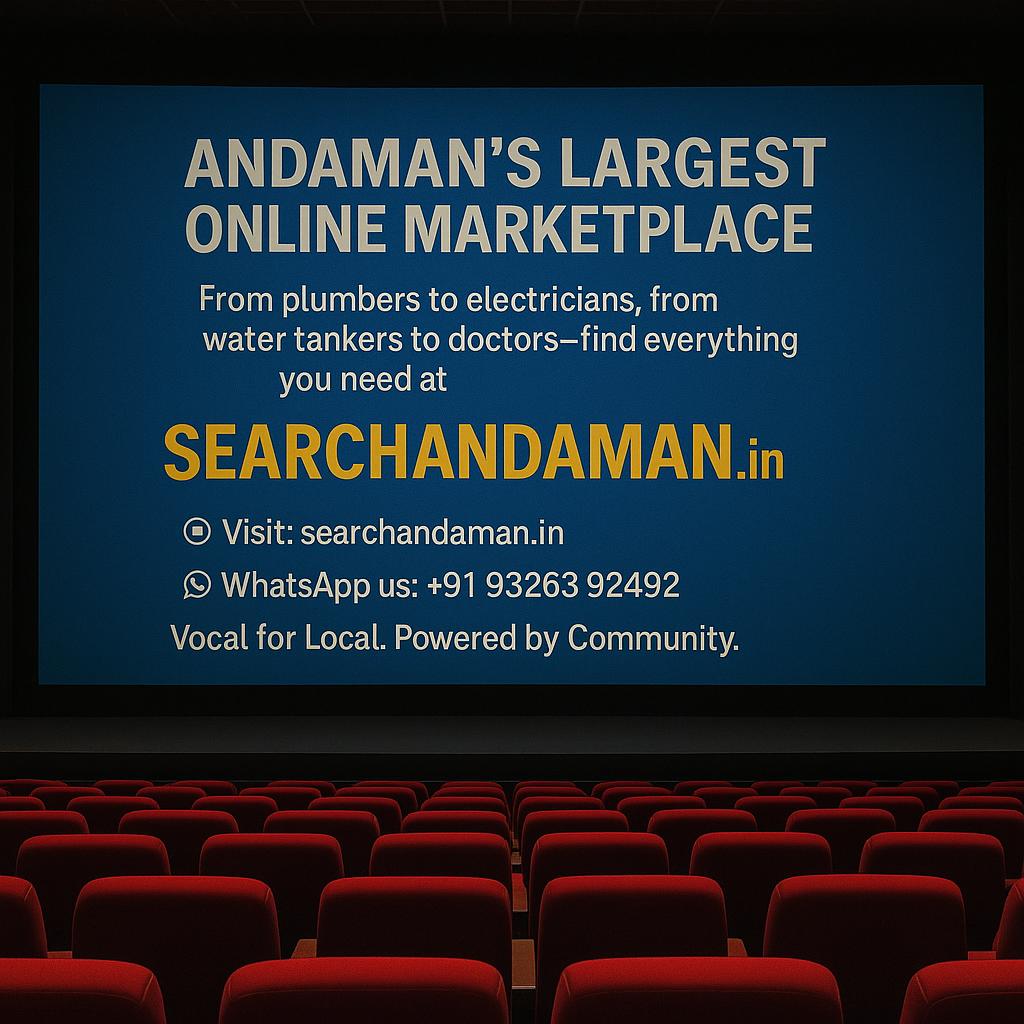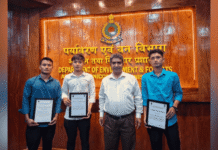The month of September has seen a strong emphasis on community health and traditional medicine across the Andaman and Nicobar Islands, with two major initiatives bringing together medical professionals, wellness advocates, and local communities. A comprehensive health camp under the Swasth Nari Sashakta Parivaar Abhiyaan was organized in Mayabunder, while Wandoor hosted the 10th Ayurveda Day, both showcasing a blend of modern healthcare practices and traditional wellness systems.
At AYUSH Arogya Mandir, Mohanpur, the health camp was held under the supervision of Dr. R.P. Hospital, Mayabunder, and drew wide participation from women in the area. The initiative focused on preventive and promotive health services, reflecting the campaign’s aim to strengthen women’s health and empower families. The camp included screenings for non-communicable diseases and tuberculosis, conducted by community health officers and auxiliary nursing staff. Participants were also introduced to yoga sessions led by trained instructors, underscoring the role of lifestyle modification and holistic practices in long-term wellness.
Special sessions were conducted by medical officers from Ayurveda and Homoeopathy disciplines, alongside support from yoga trainers. These activities highlighted the importance of integrating different systems of medicine to create more inclusive healthcare outreach. In addition, the Ayushman Bharat Digital Mission team facilitated the creation of ABHA IDs and PMJAY health cards, enabling villagers to access digital health services and financial protection under national schemes. Awareness talks on first aid and prevention of snake bites were also conducted, responding to community-specific health challenges.
Parallel to this, the 10th Ayurveda Day was celebrated at Ayush Gram Wandoor with the theme “Ayurveda for People and Planet.” The Directorate of Health Services and the A&N State AYUSH Society collaborated to organize the programme, which saw the participation of over 200 people, including students, health workers, and local villagers. The day emphasized Ayurveda’s role in addressing lifestyle disorders, while highlighting its broader contribution to sustainable living.
The event opened with discussions on the relevance of Ayurveda in everyday life. Health officials highlighted the potential of combining modern and traditional approaches to disease prevention and treatment. Exhibitions displayed medicinal plants, Panchakarma procedures, and healthy recipes prepared by Anganwadi workers and ASHAs, who also participated in a recipe competition. Winners of the contest were felicitated on the occasion, reinforcing community participation in the event.
An important feature of the celebration was the plantation drive under the initiative ‘Ek Ped Maa Ke Naam’ at the Sub Health Centre, Wandoor. Ayurvedic kits and saplings were distributed free of cost to participants, linking environmental responsibility with healthcare. The programme also hosted interactive sessions, including a presentation on healthy living through Ayurveda, and highlighted the integration of Ayurveda into daily routines for better management of health.
By reaching out to women through camps and raising awareness on Ayurveda, authorities have underlined the need for a holistic approach to well-being. Both events demonstrated that healthcare is not just about treatment but also about prevention, awareness, and lifestyle choices.
As more communities engage in such programmes, the Islands are witnessing a gradual alignment of traditional systems with modern healthcare delivery. The combination is expected to help in addressing health challenges unique to remote regions while ensuring that residents have access to both scientific and cultural resources of wellness.
September’s focus on health thus extends beyond routine medical care, spotlighting women’s empowerment, preventive screenings, and the revival of Ayurveda as an integral part of the Islands’ journey toward sustainable healthcare







